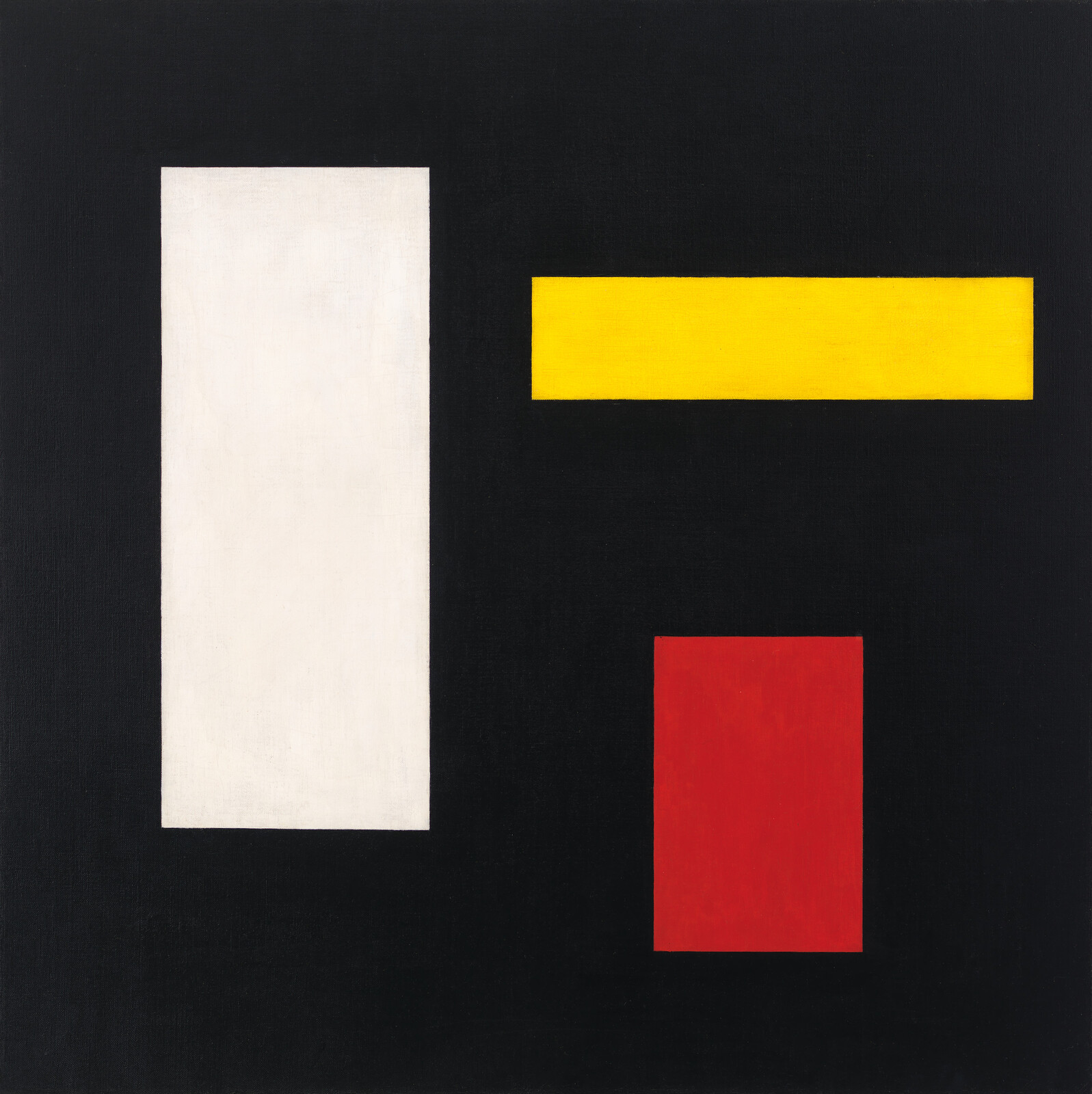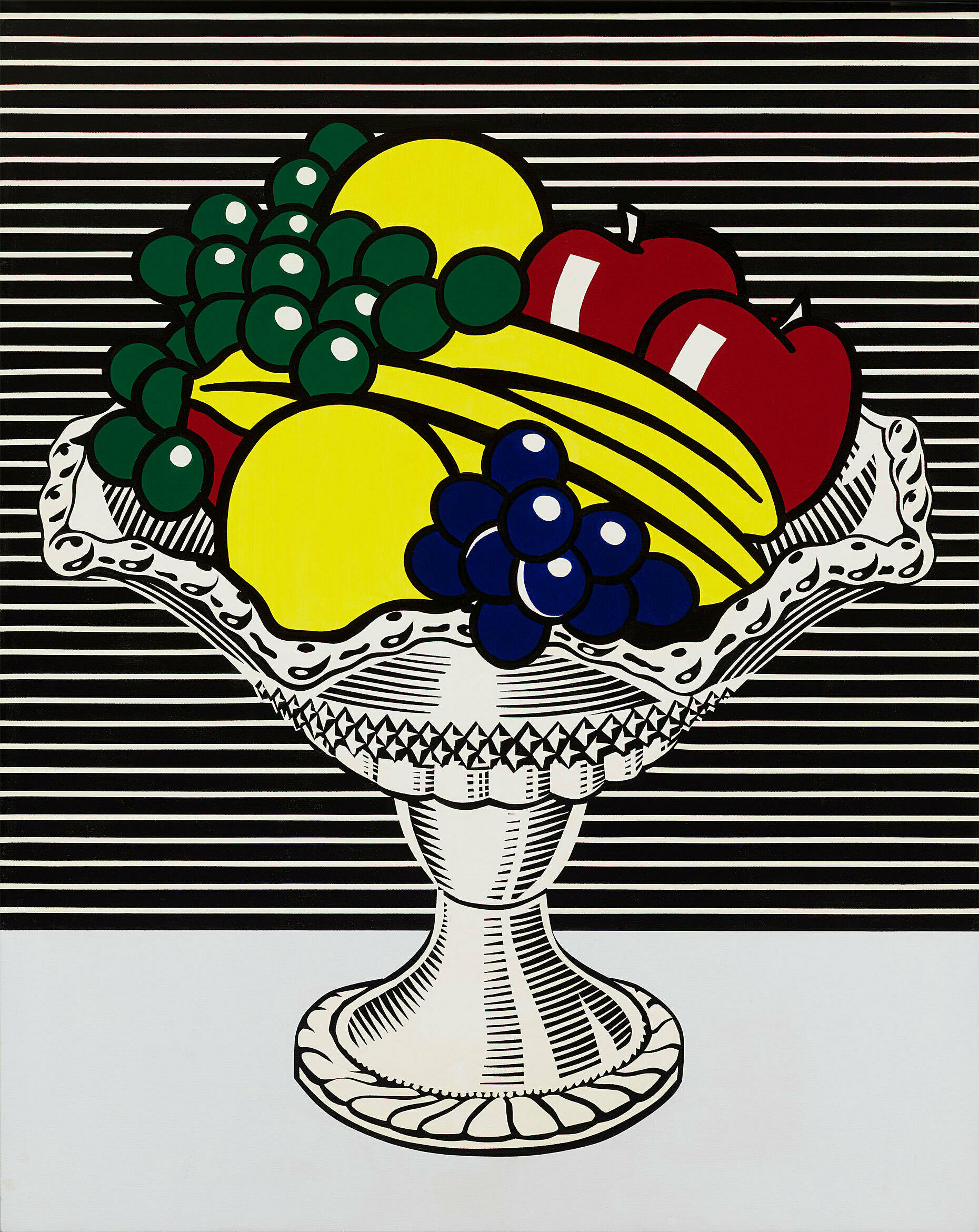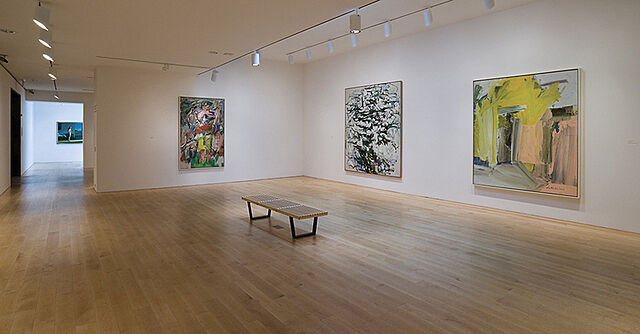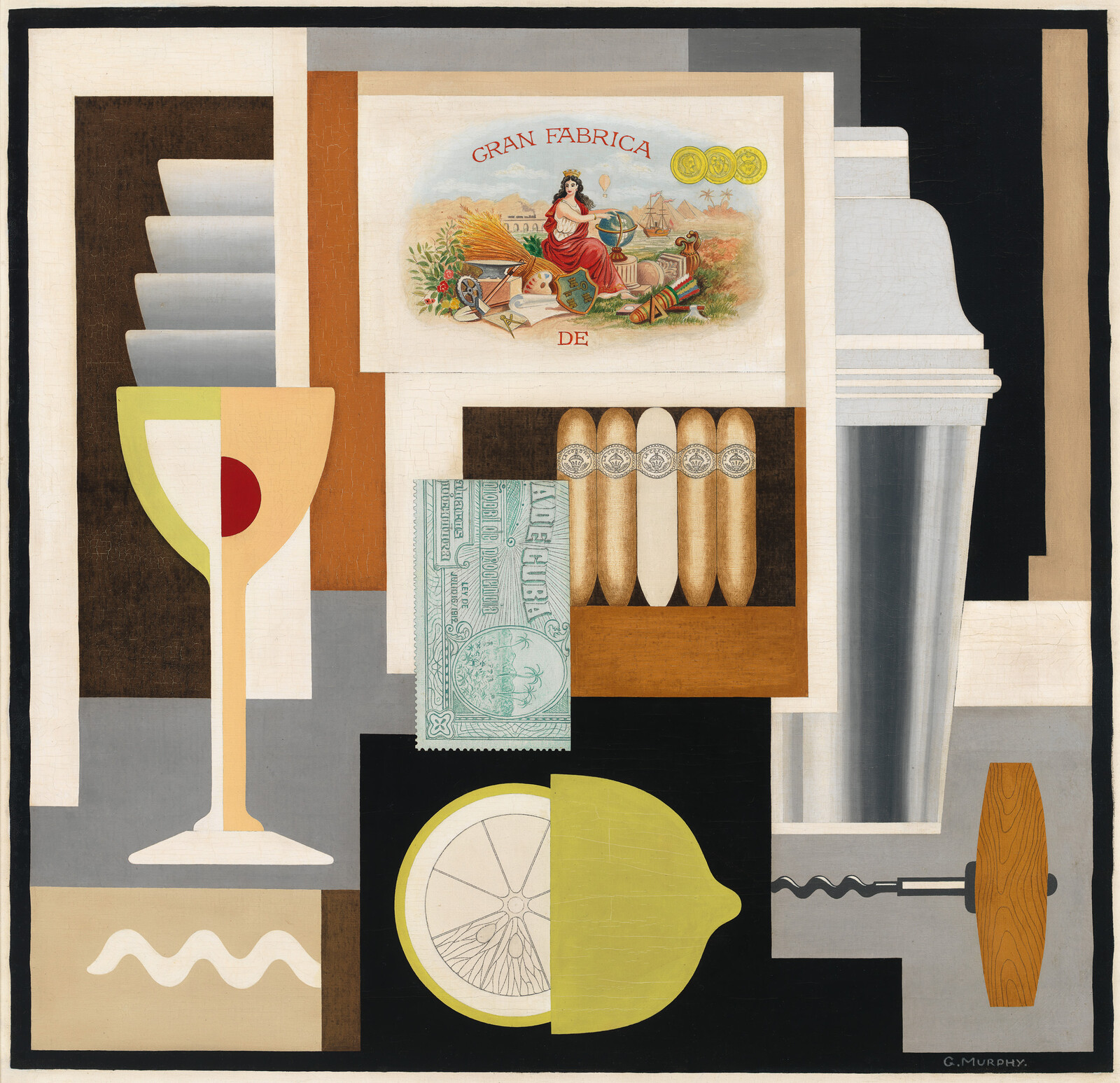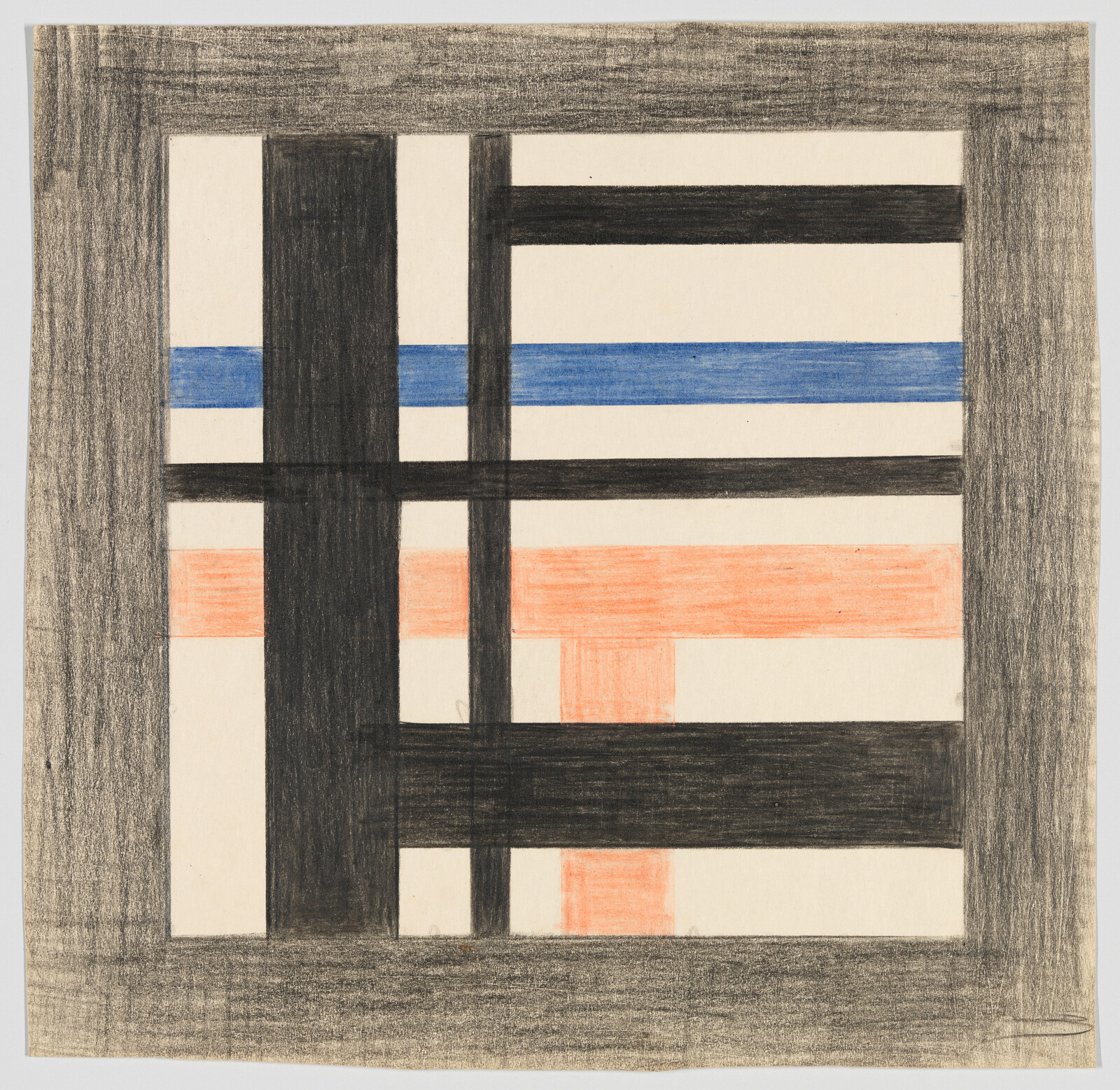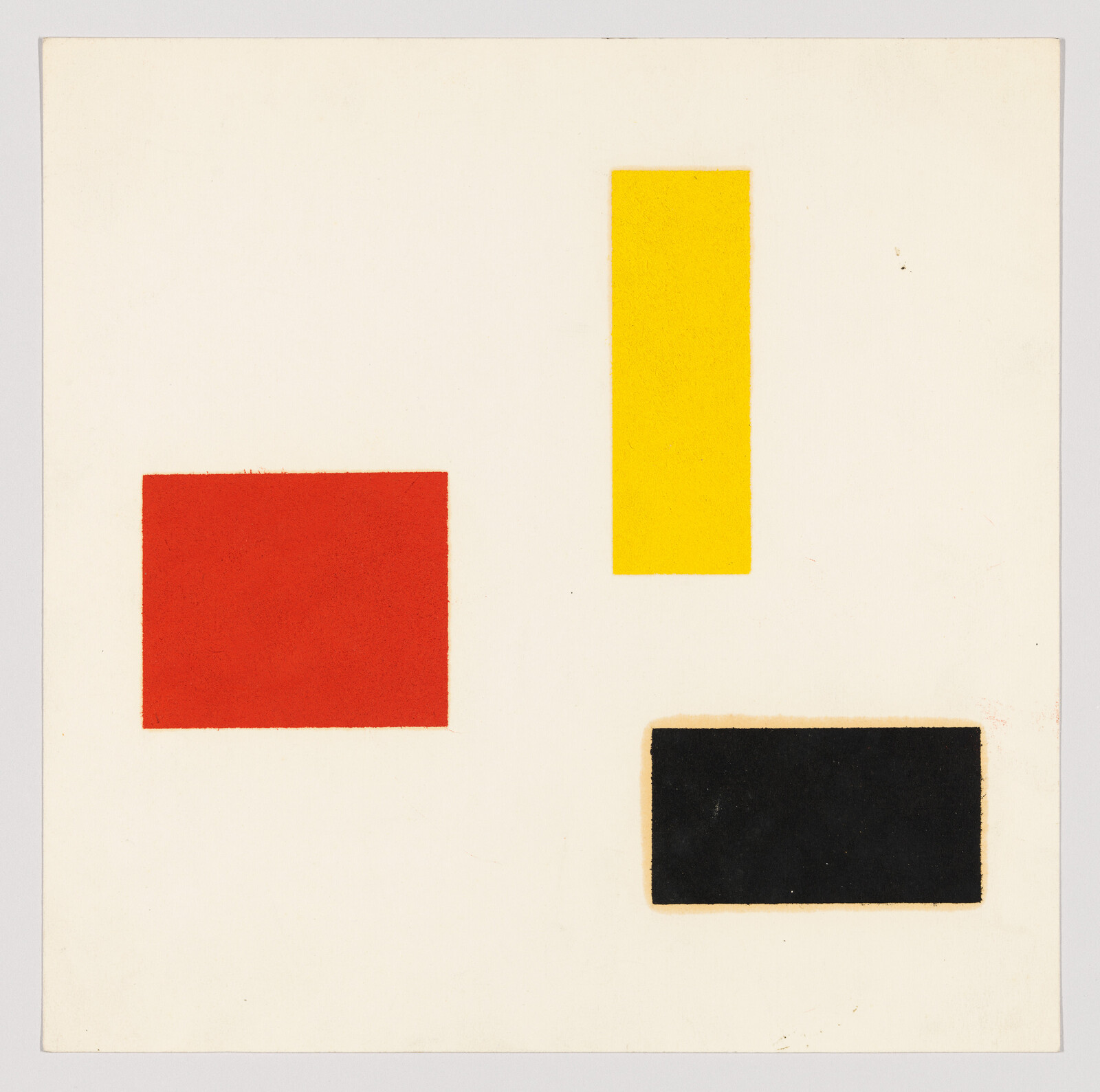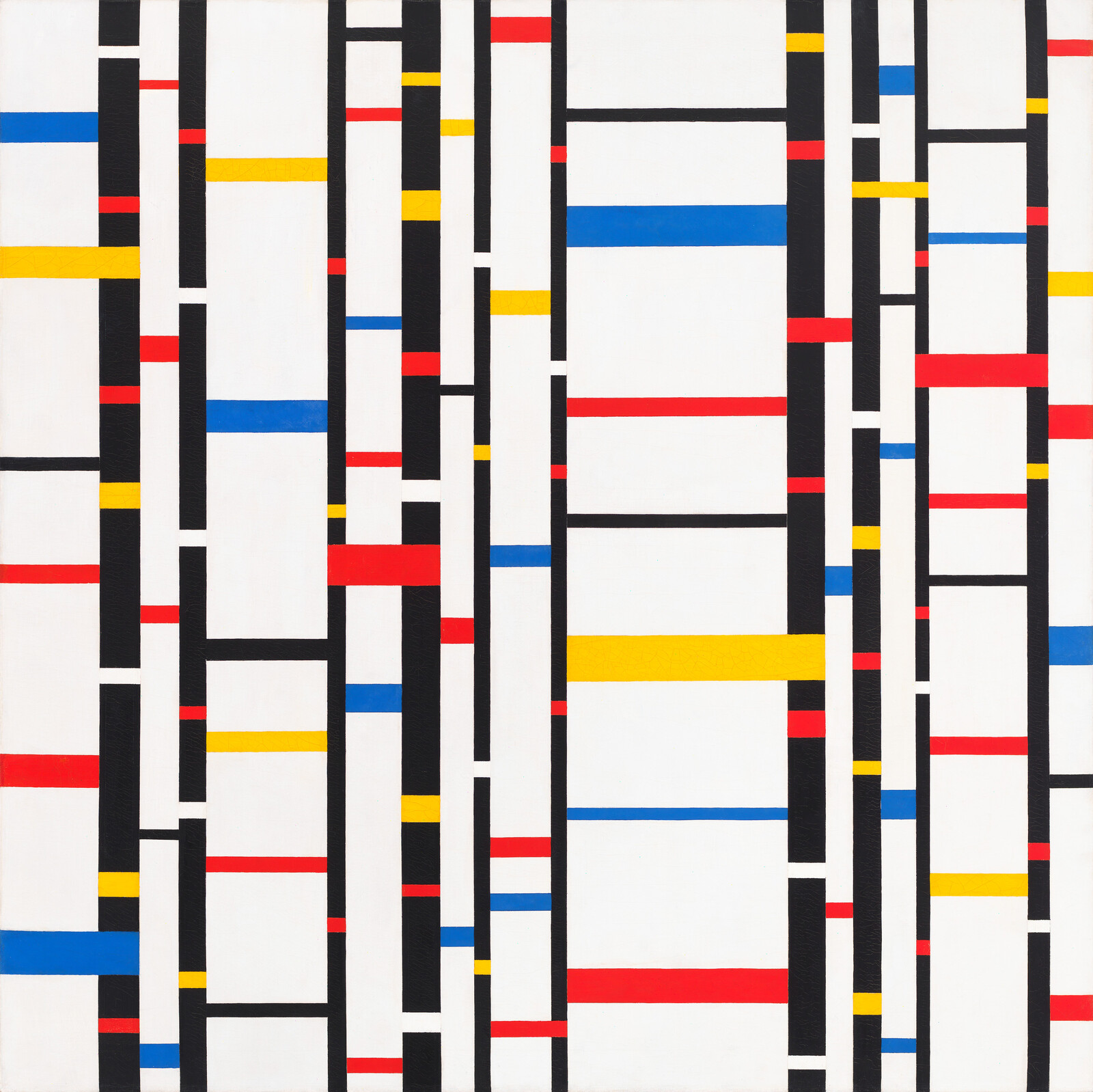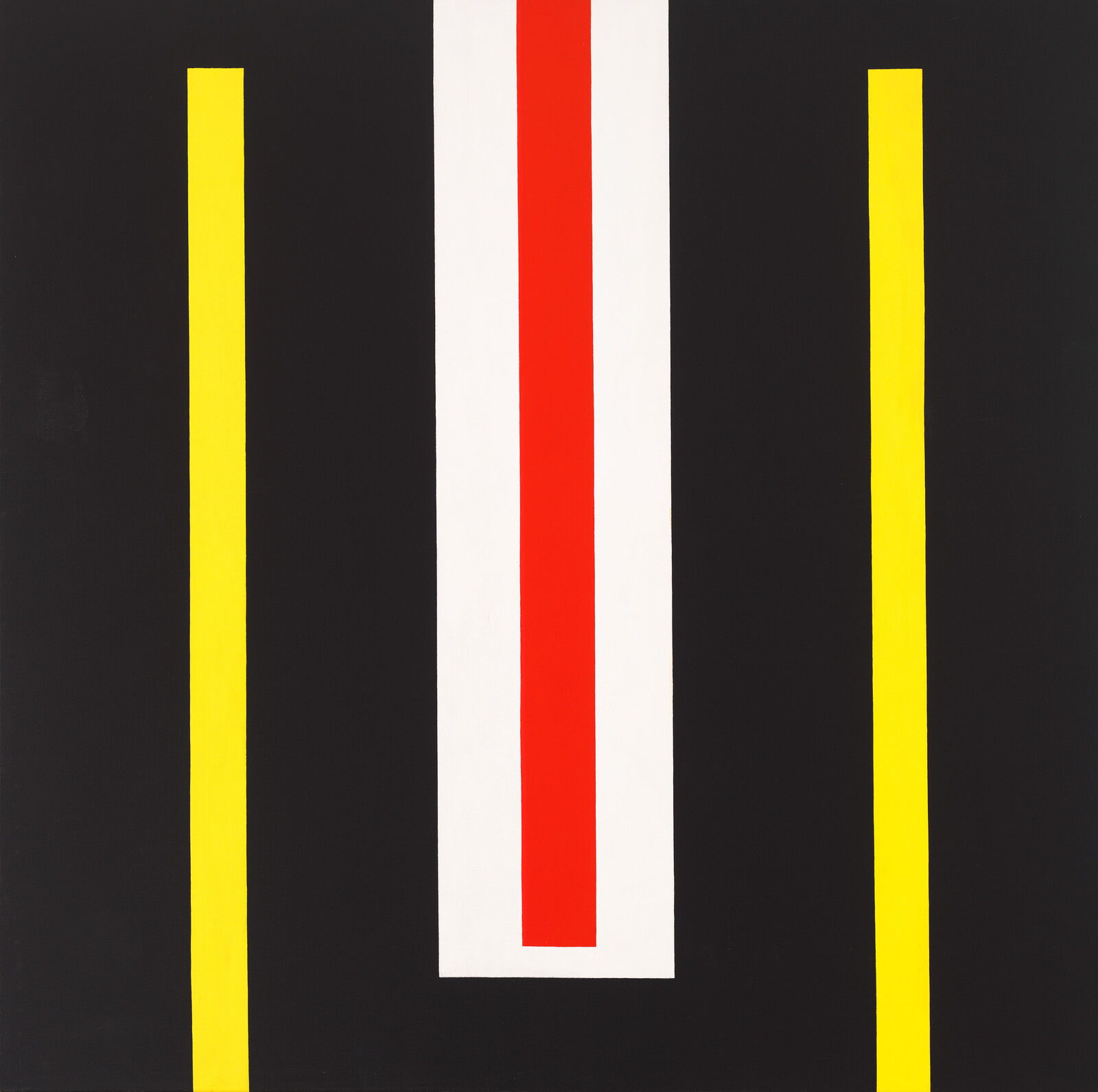Narrator: Burgoyne Diller was one of the most rigorously abstract painters working in the United States during the 1930s. Curator Barbara Haskell.
Barbara Haskell: In this painting called First Theme from 1938, what he has presented is a white square, a white rectangle, which is the largest form against this black field, and then a very small red rectangle in the lower right hand corner. Red being a color which is seen as coming out at you, as being sort of bold and aggressive and coming into our space. Yellow is a more recessive color, which seems to sort of retreat into space. So that this relationship between the yellow and the red, it almost sets up a dialogue with each other on the right-hand side of the canvas, which is then balanced by this white, large rectangle on the left. So what you have is this almost back-and-forth dialogue between these dialogues, which are then held in place. Not one of the rectangles ends up dominating the other, but you have this oscillation back and forth, which creates this tension across the surface of the canvas.
There’s a kind of syncopated energy that these canvases have, but at the same time they’re these harmonious, unified almost static, obdurate objects.
Narrator: Diller believed that these aesthetic characteristics could have a positive impact on society.
Barbara Haskell: to transcend ethnic divisions, racial, economic divisions, and create this sort of symbol of pure harmony, of disparate things coming together into a unity.

